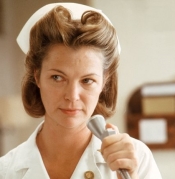My David Sedaris read-a-thon continued with Let's
Explore Diabetes With Owls, an essay collection released in 2013. I enjoy
reading Sedaris. I had been reading him on my commute and sometimes before bed or
when I wake in the middle of the night. Those times flew by.
An acquaintance said she thinks Sedaris
really loves people. I think people interest him, but I do not think he loves
them. In a previous post I noted that I find his moments of mockery
conspicuous. But maybe you can mock and love people.
My favorite essay in Owls is not a
funny or poignant one: it is "Day In, Day Out" because, in it,
Sedaris describes how he developed his writing habit and subject matter choices by keeping journals. I enjoy reading good writers talk about writing, and this essay can help aspiring professional and hobbyist writers.
One of my favorite funny parts of Owls comes in “A Friend in the Ghetto,” Sedaris’s telling of his attempt in ninth grade to forge a relationship with an overweight black girl. In this telling, he calls her Delicia. He was using Delicia to relieve the peer pressure he felt to have a girlfriend and to score cheap social-justice points. At one point, Sedaris wants to bring Delicia with him to church; his mother objects, so David accuses his mother of objecting because she fears having half-black grandchildren. His mom replies:
“That’s right,” she said. “I want you to marry someone exactly like me, with a big beige purse and lots of veins in her legs. In fact, why don’t I just divorce your father so the two of us can run off together?”
“You’re disgusting,” I told her. “I’ll never marry you. Never!” I left the room in a great, dramatic huff, thinking, Did I just refuse to marry my mother? and then, secretly, I’m free! The part of my plan that made old people uncomfortable, that exposed them for the bigots they were—and on a Sunday!—still appealed to me. But the mechanics of it would have been a pain. Buses wouldn’t be running, so someone would have to drive to the south side, pick up Delicia, and then come back across town. After I’d finished shocking everyone, I’d have to somehow get her home. I didn’t imagine her aunt had a car. My mother wasn’t going to drive us, so that just left my dad, who would certainly be watching football and wouldn’t leave his spot in front of the TV even if my date was white and offered to chip in for the gas. Surely something could be arranged, but it seemed easier to take the out that had just been handed to me and to say that our date was forbidden.
Love seemed all the sweeter when it was misunderstood, condemned by the outside world.
Later, Sedaris breaks the news to Delicia that his parents are prejudiced, and she seems undisturbed, saying only that it was okay. To which Sedaris responds:
“Well, no, actually, it’s not okay,” I told her. “Actually, it stinks.” I laid my hand over hers on the desktop and then looked down at it, thinking what a great poster this would make. “Togetherness,” it might read. I’d expected electricity to pass mutually between us, but all I really felt was self-conscious, and disappointed that more people weren’t looking on.
I wonder if this is more fiction than truth.
My other favorite funny part in Owls comes in “The Happy Place,” an essay about Sedaris getting a colonoscopy. For the procedure, he is given propofol, which gives him a sleepy sense of euphoria. He writes of the experience:
Never had I experienced such an all-encompassing sense of well-being. Everything was soft-edged and lovely. Everyone was magnificent. Perhaps if I still drank and took drugs I might not have felt the effects so strongly, but except for some Dilaudid I’d been given for a kidney stone back in 2009, I had been cruelly sober for thirteen years.
After the procedure, Sedaris writes of waking and finding a woman in his room.
“I’m going to need for you to pass some gas,” said the woman putting papers into envelopes. She spoke as if she were a teacher, and I was a second-grade student. “Do you think you can do that for me?”
“For you, anything.” And as I did as I was instructed, I realized it was no different than playing a wind instrument. There were other musicians behind other curtains, and I swear I could hear them chiming in, the group of us forming God’s own horn section.
Reviews of books by Sedaris are not hard to find, and some of them trace changes in his writing. I have found Sedaris to be pretty consistent from one book to the next. And this is the fourth book of his that I have read, following Me Talk Pretty One Day, Dress Your Family in Corduroy and Denim, Calypso, and When You AreEngulfed in Flames (and not counting The Best of Me, which a best-of rather than a stand-alone collection).
















